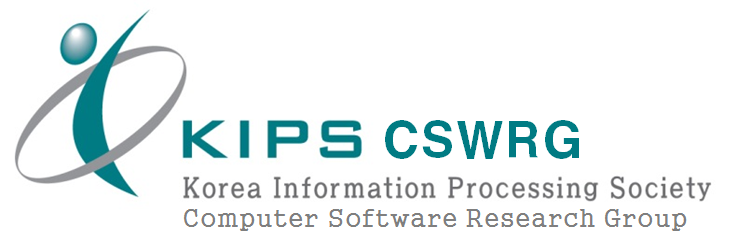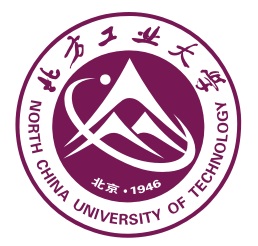
  |
Call for Papers
Download : TXT
Future technology information technology would stand for all of continuously evolving and converging information technologies, including digital convergence, multimedia convergence, intelligent applications, embedded systems, mobile and wireless communications, bio-inspired computing, grid and cloud computing, semantic web, user experience and HCI, security and trust computing and so on, for satisfying our ever-changing needs.
In past twenty five years or so, Information Technology (IT) influenced and changed every aspect of our lives and our cultures. Without various IT-based applications, we would find it difficult to keep information stored securely, to process information efficiently, and to communicate information conveniently.
In the future world, IT will play a very important role in convergence of computing, communication, and all other computational sciences and application and IT also will influence the future world's various areas, including science, engineering, industry, business, law, politics, culture, medicine, and so on.
Our conference is intended to foster the dissemination of state-of-the-art research in all future IT areas, including their models, services, and novel applications associated with their utilization.
FutureTech2016 is the next edition of FutureTech2015(Hanoi, Vietnam), FutureTech2014(Zhangjiajie, China), FutureTech 2013(Gwangju, Korea), FutureTech2012(Vancouver, Canada), FutureTech2011(Loutraki, Greece), FutureTech2010 (Busan, Korea) which were the next events in a series of highly successful the International Symposium on Ubiquitous Applications & Security Services(UASS-09, USA), previously held as UASS-08(Okinawa, Japan), UASS-07 (Kuala Lumpur, Malaysia), and UASS-06(Glasgow, Scotland, UK).
Organizing Committee(Pending)
==General Chairs==
Jia Weijia, Shanghai Jiaotong University, ChinaWanlei Zhou, Deakin University, Australia
Young-Sik Jeong, Dongguk University, Korea
Qun Jin, Waseda University, Japan
Hong Shen, University of Adelaide, Australia
Muhammad Khurram Khan, King Saud University, Saudi Arabia
==Program Chairs ==
Gangman Yi, Gangneung-Wonju National University, KoreaZhangdui Zhong, Beijing Jiaotong University, China
Yu Chen, State University of New York, USA
Mingquan Zhou, Beijing Normal University, China
Kwang-il Hwang, Incheon national University, Korea
Ka Lok Man, Xi'an Jiaotong-Liverpool University, China
Neil Yen, University of Aizu, Japan
Ying Zhao, Beijing University of Chemical Technology, China
==Workshop Chairs ==
Jungho Kang, Sungsil University, KoreaJian Chen, Taiyuan University of Technology, China
==Intl' Advisorary Committee==
James J. Park, SeoulTech, Korea (Steering Chair)Doo-soon Park, SoonChunHyang University, Korea
Laurence T. Yang, St Francis Xavier University, Canada
Jason C. Hung, Oversea Chinese University, Taiwan
Jianhua Ma, Hosei University, Japan
C.S. Raghavendra, University of Southern California, USA
Philip S. Yu, University of Illinois at Chicago, USA
Hai Jin, Huazhong University of Science and Technology, China
Yi Pan, Georgia State University, USA
Shu-Ching Chen, Florida International University, USA
Victor Leung, University of British Columbia, Canada
Vincenzo Loia, University of Salerno, Italy
Hsiao-Hwa Chen, National Cheng Kung University, Taiwan
==Publicity Chairs==
Kevin Cheng, Tatung University, TaiwanEunyoung Lee, Dongduk Women's University, Korea
Yishui Zhu, Chang'an University, China
Byung-Gyu Kim, Sunmoon University, Korea
Weimin Li, Shanghai University, China
Yishui Zhu, Chang'an University, China
We are inviting new and unpublished papers on, but not limited to, the following topics:
- Track 1. Hybrid Information Technology
- Track 2. High Performance Computing
- Track 3. Cloud and Cluster Computing
- Track 4. Ubiquitous Networks and Wireless Communications
- Track 5. Digital Convergence
- Track 6. Multimedia Convergence
- Track 7. Intelligent and Pervasive Applications
- Track 8. Security and Trust Computing
- Track 9. IT Management and Service
- Track 10. Bioinformatics and Bio-Inspired Computing
- Track 11. Database and Data Mining
- Track 12. Knowledge System and Intelligent Agent
- Track 13. Game and Graphics
- Track 14. Human-centric Computing and Social Networks
Important Date
Round II ----------
Paper submission due: Feb. 25, 2016 (Final Extension!!!)
Accept notification: Mar. 5, 2016 (Final Extension!!!)
Camera-ready paper due: Mar. 15, 2016 (Final Extension!!!)
Registration due: Mar. 15, 2016 (Final Extension!!!)
Conference/Workshop dates: April 20-22, 2016
Round I ---------
Paper submission due: Dec. 30, 2015 (Closed)
Accept notification: Jan. 15, 2016 (Closed)
Camera-ready paper due: Jan. 25, 2016 (Extension)
Registration due: Jan. 25, 2016 (Extension)
Conference/Workshop dates: April 20-22, 2016
Submission and Publication
- Please DO NOT repeatedly create new paper id with the identical paper in our editorial system.
When more than two identical papers are submitted in the editorial system, the papers will be rejected (without review process).
If any problems, please contact to leading program chair. - In case of more than two withdrawals of accepted papers, the author will be placed on a blacklisted in our DB by the FutureTech2016 policy. We will NOT allow your submission to FutureTech2016 Confs., SIs, and events.
There will be a combination of presentations including scientific papers. Prospective authors are invited, in the first instance, to submit papers for oral presentations in any of the areas of interest for this conference.
Authors should submit a paper based on page limitation including all figures, tables, and references. If you want to submit more than page limitation, you can add up to 2 extra pages with the appropriate fee payment.
All accepted papers will be included in the conference proceedings published by Lecture Notes in Electrical Engineering (LNEE) - Springer (indexed by EI and SCOPUS).
Authors should submit a paper with 5~6 pages in length, including all figures, tables, and references.
If you want to submit more than page limitation, you can add up to 2 extra pages (total MAX. 8 pages) with the extra page charges (100 USD per page).
Papers exceeding the page limits will be rejected without review.
Instructions for papers in the Springer's LNEE is as follows.(Note that the paper format of LNEE is the same as that of LNCS)
Prepare your paper in the exact format as the sample paper for LNEE. Failure to do so may result in the exclusion of your paper from the proceedings. Please read the authors' instructions carefully before preparing your papers. Springer accepts both Microsoft Word and LaTex format in the Lecture Note Series.
However, we DO NOT accept the use of LaTex. Therefore, you should use the Microsoft Word instead of using LaTex (The paper will be excluded from the proceeding if you use LaTex).
Springer provides the relevant templates and sample files for both PC (sv-lncs.dot) and Mac (sv-lncs) environments.
Please download word.zip
If you need more help on preparing your papers, please visit Springer's LNCS web page (http://www.springer.com/computer/lncs?SGWID=0-164-2-72376-0).
** You can download the sample from here **
All accepted papers will be included in the conference proceedings as one of Lecture Notes in Electrical Engineering (LNEE) series published by Springer (indexed by EI & SCOPUS).
Distinguished accepted and presented papers in FutureTech2016, after further revisions, will be published in the special issues of the following international journals (Pending):
- The Journal of Supercomputing (JoS) - Springer (SCI)
- Multimedia Tools and Applications (MTAP) - Springer (SCIE)
- Human-Centric and Information Sciences (HCIS), Springer (SCOPUS)



** This is the current index status of the journal. However, the journal indices may be changed due to several reasons. In that case, we are not responsible for it
** When authors recommend potential reviewers for their paper, the recommended reviewers' countries must be different.
** The recommended authors MUST strongly keep the recommendation guideline for the submission.
Submission system: http://www.confmanager.net/futuretech2016/
Contact
If you have any questions about the CFPs and papers submission, please email to
Prof. Gangman Yi(yi.gangman@gmail.com)/Prof. Neil Yen(neil219@gmail.com).